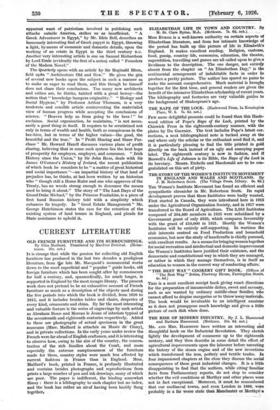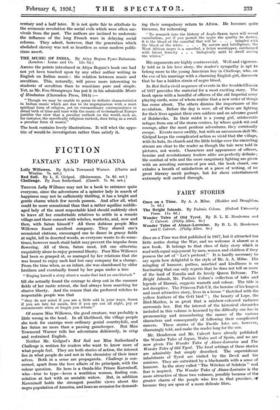THE RISE OF MODERN INDUSTRY. By J. L. Hammond and
Barbara Hammond. (Methuen. 10s. 6d. net.) Mx. AND MRS. HAMMOND have written an interesting and thoughtful book on the Industrial Revolution. They sketch lightly the development of commerce up to the eighteenth century, and they then describe in some detail the effect of agricultural iinprovements upon the labourer before narrating
the history of the steam engine and of the new inventions which transformed the iron, pottery and textile trades. In
four impassioned chapters at the close they discuss the social consequences of these great industrial changes. It is a little disappointing to find that the authors, while citing' familiar facts from Parliamentary reports, do not stop to consider whether the evil conditions at Merthyr and other places were not in fact exceptional. Moreover, it must he remembered that our mediaeval towns, and even London in 1666, were
probably in a far worse state than hianchester or Merthyr a
century and a half later. It is not quite fair to attribute to the economic revolution the social evils which were often sur- vivals from the past. The authors are inclined to underrate the influence of the long French wars in delaying social reforms. They admit, however, that the generation which abolished slavery was not so heartless as some modern politi- cians assert.



























































 Previous page
Previous page